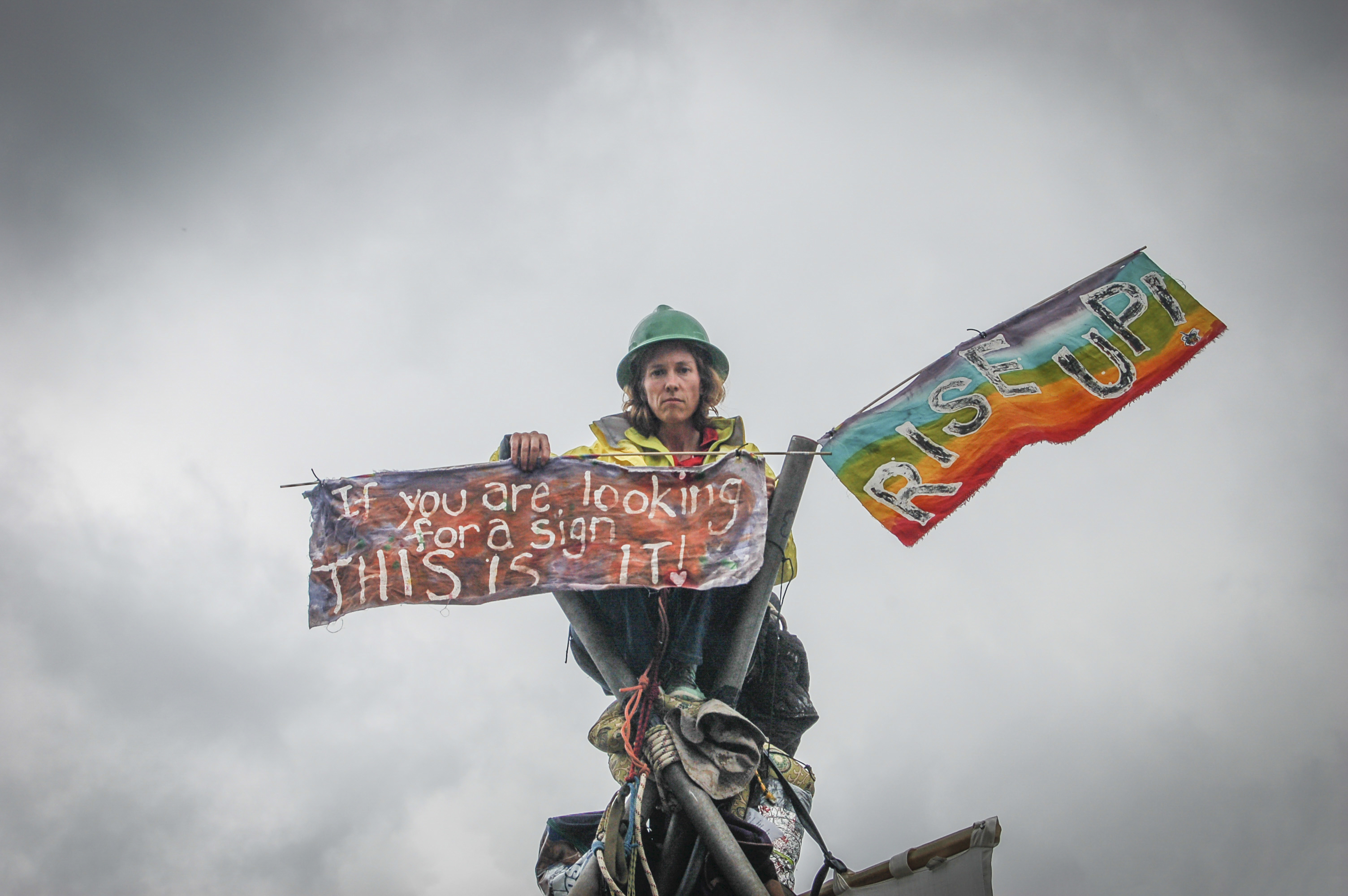The five climate activists on trial for setting up a blockade in an Everett rail yard for eight hours in September 2014 got their verdict today: Guilty of trespassing, but not guilty of blocking or delaying a train. For the defendants, that’s a huge victory. They won’t go to jail, and because they were cleared of the train-blocking charge, BNSF railway can’t demand financial restitution for the economic impacts of the train delay.
Regarding the misdemeanor charge of criminal trespass in the second degree, the consequences are pretty minor: each defendant, except Michael Lapointe, will have to pay a $200 fine, plus fees. They also each received a “90 days suspended” jail sentence, which means no jail time.
All week, the trial has been gathering national headlines and a storm of support on social media from climate groups and activists across the world:
A gallery of heroes if there ever was one Such thanks to the #delta5 and all assisting them! pic.twitter.com/dlUH3unFf0
— Bill McKibben (@billmckibben) January 15, 2016
So when the verdict came in, most were pretty ecstatic: “Watching history in making,” reads another Tweet. “Goosebumps for human virtue in facing climate change catastrophe.”
Interestingly, the jury’s favorable verdict came after they were instructed not to consider the “necessity defense.” Prior to the start of the trial on Monday, Judge Anthony Howard had told the defense team that they would be allowed to employ the necessity defense in this case — the legal principle that says the harm caused by a crime was necessary to prevent further harm. For the first time in an American court, the necessity defense was applied to climate change.
All week, therefore, the defense argued that the potential harm posed by explosive oil trains and climate change is greater than that caused by blocking a train. They brought in testimony from climate and energy policy experts, a hazardous materials safety expert, a physician, and a BNSF whistleblower.
Judge Howard did not decide until Thursday, however, that he would not instruct the jury to consider the necessity defense. Instead, he instructed them to disregard all of the expert testimony they’d heard, as he didn’t believe that breaking the law was the only option available to the defendants — the precedent set in previous necessity defense cases.
But according to activist and Climate Disobedience Center co-founder Tim DeChristopher, Tweeting about the trial all week, jurors were nevertheless moved by the defense’s testimony — which possibly influenced their decision to debunk the more serious charge.
“Jurors saying they were powerfully moved by the testimony which they were not allowed to consider in their decision,” he wrote earlier today. Then, “Juror tell defendants: ‘Thanks for the education.'” And then: “One juror tells @MarlaMarcum that they definitely would have acquitted if they had gotten necessity instructions.”
Overall, the Delta 5 are pleased with how the trial played out. “On behalf of the Delta 5,” defendant Abby Brockway told Judge Howard, “we were honored to have our four days in court.”
Added defendant Michael Lapointe, “I’m disappointed in the ruling on the necessity defense, although I understand this is the law. But the law needs to be changed. There is no consideration of the time factor. [Climate change] is a matter of time.”
He argued that he had no alternative to civil disobedience in this case, in part because of how time-sensitive he believes climate change to be, and because “we have no rights as a people, as a democracy, anymore… I don’t want to go off on a tangent, but… too late!”
The courtroom broke into laughter. “It’s instances like this, it’s moments in history, that can affect the change we need,” Lapointe said. “I just want to say that I’m proud of everybody in this room.”








